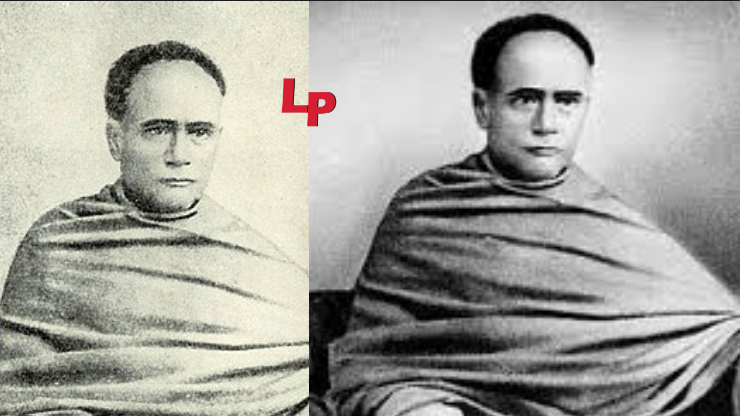Who is Ishwar Chandra Vidyasagar? – Ishwar Chandra Vidyasagar, born Ishwar Chandra Bandyopadhyay on 26 September 1820 in Birsingha, India, was a prominent 19th-century Indian educator and social reformer. His contributions to modernizing Bangla prose and rationalizing the Bangla alphabet are legendary. Vidyasagar’s relentless efforts for the Hindu widow remarriage and against child marriage mark significant milestones in India’s social reforms.
In this Post, we will tell you everything about Ishwar Chandra Vidyasagar Biography. Keep reading to know his age, net worth, height, relationships, education, and more….
Ishwar Chandra Vidyasagar Biography
| Attribute | Details |
|---|---|
| Full Name | Ishwar Chandra Bandyopadhyay |
| Popular Name | Ishwar Chandra Vidyasagar |
| Date of Birth | 26 September 1820 |
| Birthplace | Birsingha, India |
| Mother’s Name | Bhagavati Devi |
| Father’s Name | Thakurdas Bandyopadhyay |
| Death Date | 29 July 1891 |
| Occupation | Educator, Social Reformer |
| Notable Contributions | Simplified Bangla prose and alphabet, Campaigned for Hindu widow remarriage and against child marriage, Established female education institutions |
Early Life and Education
Vidyasagar was born into a Hindu Brahmin family, the son of Thakurdas Bandyopadhyay and Bhagavati Devi. His early life in Birsingha village was marked by simplicity and a deep quest for knowledge. At the age of nine, he moved to Calcutta, where he lived with Bhagabat Charan’s family in Burrabazar. This move marked the beginning of his academic journey, which would lead to his exceptional achievements in education.
His passion for learning was so intense that he studied under street lights, unable to afford a gas lamp at home. Vidyasagar excelled in his studies, earning multiple scholarships. To support his family, he took up a part-time teaching job while continuing his education at the Sanskrit College, Calcutta, where he graduated in 1841, excelling in various disciplines including Sanskrit Grammar, Literature, Dialectics, Vedanta, Smriti, and Astronomy.
Career and Contributions
In 1841, Vidyasagar joined Fort William College as the head of the Sanskrit department. Five years later, he moved to the Sanskrit College as an Assistant Secretary, where he proposed significant reforms to the education system. His proposals led to conflicts with the College Secretary, Rasomoy Dutta, and in 1849, Vidyasagar resigned from the Sanskrit College to rejoin Fort William College as a head clerk.
Vidyasagar’s most notable contributions include simplifying and modernizing Bangla prose and alphabet, making the language more accessible to the masses. His advocacy for Hindu widow remarriage led to the passage of the Hindu Widows’ Remarriage Act, 1856, despite severe opposition. He also played a crucial role in the enactment of the Age of Consent Act, 1891, which set the minimum age of marriage consummation at twelve years.
Social Reforms and Legacy
Vidyasagar’s commitment to social reforms extended beyond his literary contributions. He was a staunch advocate for female education and was associated with the Hindu Female School, which later became Bethune Female School. His dedication to women’s upliftment was deeply influenced by his experiences with Bhagabat Charan’s family, particularly the motherly affection of Bhagabat’s youngest daughter, Raimoni.
Vidyasagar’s legacy is celebrated for his relentless pursuit of knowledge and social justice. His efforts have left an indelible mark on Indian society, paving the way for future reforms and educational advancements.
Death and Remembrance
Ishwar Chandra Vidyasagar passed away on 29 July 1891, but his legacy continues to inspire generations. His birth anniversary, 26 September, is commemorated with reverence, celebrating his contributions to education and social reform.
FAQs
What was Ishwar Chandra Vidyasagar’s contribution to Bangla language?
Ishwar Chandra Vidyasagar simplified and modernized Bangla prose and rationalized the Bangla alphabet, making the language more accessible to the general populace.
How did Vidyasagar contribute to social reforms?
Vidyasagar was a prominent campaigner for Hindu widow remarriage and against child marriage. His efforts led to the Hindu Widows’ Remarriage Act, 1856, and the Age of Consent Act, 1891.
What was Ishwar Chandra Vidyasagar’s educational background?
Vidyasagar studied at the Sanskrit College, Calcutta, where he excelled in various disciplines. He later joined Fort William College and the Sanskrit College as a teacher and administrator.
Who were Ishwar Chandra Vidyasagar’s parents?
Vidyasagar was born to Thakurdas Bandyopadhyay and Bhagavati Devi in Birsingha, India.
When did Ishwar Chandra Vidyasagar pass away?
Ishwar Chandra Vidyasagar passed away on 29 July 1891.
Conclusion
Ishwar Chandra Vidyasagar’s life and legacy are a testament to his unwavering dedication to education and social reform. His contributions to the Bangla language, advocacy for widow remarriage, and efforts against child marriage have left a lasting impact on Indian society. As we commemorate his birth anniversary on 26 September, we remember his invaluable contributions and the enduring legacy he left behind
